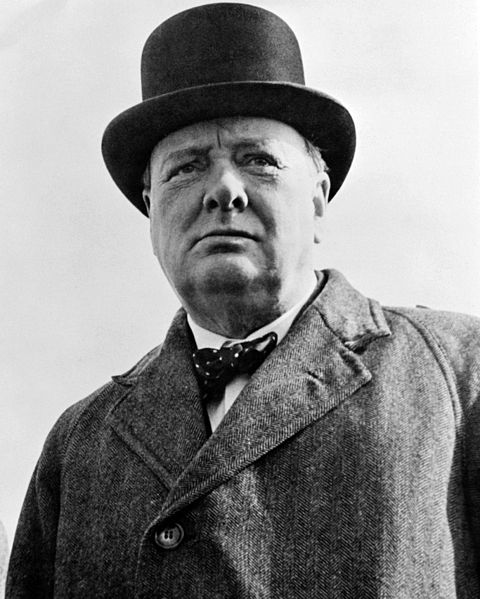Unleashing the Power of Leadership: Lessons and Stories of Brian Tracy

Meet Brian Tracy: A Leadership Thought Leader with Timeless Teachings
Brian Tracy is a renowned author, speaker, and business consultant who has spent over four decades helping individuals and organizations achieve their goals and realize their full potential. He is widely regarded as one of the leading experts in the field of leadership development and has written numerous books on the subject, including “The Psychology of Achievement,” “Eat That Frog!,” and “No Excuses!: The Power of Self-Discipline.”
Tracy’s work focuses on the principles and practices that enable individuals to be more effective and successful in their personal and professional lives. His teachings are based on the idea that success is not a matter of luck, but rather a result of following certain principles and taking specific actions.
Through his books, seminars, and consulting work, Tracy has impacted the lives of millions of people around the world. His teachings have helped individuals and organizations overcome challenges, achieve their goals, and become more productive and successful.
The purpose of this article is to provide an in-depth look at Brian Tracy’s leadership philosophy and principles, as well as his life experiences that have shaped his approach to leadership development. By exploring Tracy’s career and his insights into effective leadership, we aim to provide readers with valuable lessons that they can apply to their own lives and careers.
The article will also examine real-life scenarios where Tracy’s leadership principles have been successfully applied, providing practical examples of how his teachings can be put into practice. Finally, the article will conclude with a summary of Tracy’s key leadership lessons and their relevance in today’s world, as well as recommendations for aspiring leaders who wish to improve their own leadership skills.
Overall, this article aims to provide readers with a comprehensive understanding of Brian Tracy’s leadership philosophy and how it can be applied to achieve success in their personal and professional lives.
Early Years
Childhood and Upbringing
Brian Tracy was born in eastern Canada in 1944 and grew up in a working-class family. His parents were immigrants from Europe who worked hard to provide for their family. Tracy’s father was a truck driver, and his mother worked as a waitress.
Growing up, Tracy learned the value of hard work and perseverance from his parents. They instilled in him a strong work ethic and taught him the importance of setting goals and working towards them.
Education and Early Career
Tracy attended the University of Alberta, where he studied business and economics. After graduating, he started his career as a salesperson for a door-to-door sales company. Despite initially struggling in his new role, Tracy persevered and eventually became the top salesperson in the company.
Tracy went on to work in a variety of sales and marketing roles, including as a sales manager for a large company in the United States. It was during this time that Tracy began to develop his philosophy of success, which he would later write about in his books and share through his speaking engagements.
Major Challenges and Setbacks
Although Tracy experienced many successes in his early career, he also faced his fair share of challenges and setbacks. In the early 1980s, he experienced a major setback when the company he was working for went bankrupt. Tracy found himself without a job and without any savings.
Despite this setback, Tracy did not give up. He started his own consulting business, which eventually led to him becoming a sought-after speaker and author. Over the years, Tracy has faced many challenges, including health problems and personal struggles, but he has always persevered and continued to grow and succeed.
Tracy’s early years taught him many valuable lessons about the importance of hard work, perseverance, and resilience. These lessons would go on to shape his leadership philosophy and inform his approach to helping others achieve success in their own lives and careers.
Lessons from Brian Tracy’s Career
Leadership Philosophy and Principles
Goal Setting and Time Management
One of the key principles that Tracy teaches is the importance of goal setting and time management. According to Tracy, setting clear, specific goals is essential to achieving success, as it helps individuals stay focused and motivated.
Tracy also emphasizes the importance of time management in achieving goals. He believes that effective time management is crucial to maximizing productivity and achieving results. Tracy encourages individuals to prioritize their tasks and focus on the most important activities that will help them achieve their goals.
Continuous Learning and Personal Growth
Tracy believes that continuous learning and personal growth are essential to success in today’s fast-paced, ever-changing world. He encourages individuals to read books, attend seminars, and seek out mentors who can help them develop new skills and perspectives.
Tracy also emphasizes the importance of personal growth, both in terms of professional skills and personal development. He believes that individuals who focus on personal growth and self-improvement are more likely to achieve success and fulfillment in all areas of their lives.
Building High-Performance Teams
Another key principle of Tracy’s leadership philosophy is the importance of building high-performance teams. Tracy believes that effective leadership involves creating a positive, collaborative work environment where individuals are empowered to contribute their best work.
Tracy emphasizes the importance of clear communication, mutual respect, and shared goals in building high-performance teams. He encourages leaders to delegate responsibility and provide their team members with the support and resources they need to succeed.
Leadership Stories and Anecdotes
Turning Around a Failing Sales Team
Tracy has shared many leadership stories and anecdotes over the years, but one of his most compelling is the story of how he turned around a failing sales team early in his career. Tracy was hired as the sales manager for a company that was struggling to meet its sales targets.
Tracy immediately began working with his team to set clear goals and develop a plan to achieve them. He implemented a system of regular communication and accountability, and provided his team members with the training and support they needed to succeed.
Within a few months, Tracy’s team had surpassed their sales targets and become one of the top-performing teams in the company. Tracy’s success in turning around this failing sales team became a key lesson in his leadership philosophy and principles.
Overcoming Adversity in Business and Personal Life
Tracy has also faced many challenges and setbacks in his personal and professional life. He has experienced health problems, financial difficulties, and personal struggles, but has always remained focused on his goals and continued to work towards achieving them.
Tracy believes that adversity is a natural part of life, and that the key to success is learning to overcome it. He encourages individuals to stay positive, stay focused on their goals, and never give up, even in the face of difficult challenges.
Navigating Complex Organizational Challenges
Tracy has also worked with many organizations over the years, helping them navigate complex challenges and achieve their goals. He has shared many stories of how he has helped organizations improve their performance and overcome obstacles.
One of Tracy’s most compelling stories is about a company that was struggling to compete in a crowded marketplace. Tracy worked with the company’s leadership team to identify the root causes of their challenges and develop a plan to address them.
Through a combination of improved leadership, better communication, and strategic planning, the company was able to turn around its performance and become a top competitor in its industry. Tracy’s success in helping this company overcome its challenges became a key lesson in his leadership philosophy and principles.
Application of Brian Tracy’s Lessons in Real-Life Scenarios
Case Studies of Successful Leadership
Case Study 1: A CEO who Transformed a Struggling Company using Brian Tracy’s Principles
In this case study, we explore how a CEO used Brian Tracy’s leadership principles to transform a struggling company. The company had been struggling for several years, with declining sales, low morale, and a lack of direction. The CEO knew that something needed to change, and turned to Brian Tracy’s teachings for guidance.
The CEO began by setting clear, specific goals for the company and communicating them to the entire team. He also implemented a system of regular communication and accountability, and provided his team members with the training and support they needed to succeed.
Through a combination of improved leadership, better communication, and strategic planning, the company was able to turn around its performance and become a top competitor in its industry. The CEO’s success in turning around this struggling company became a testament to Brian Tracy’s leadership principles, and a powerful example of how they can be applied in real-world scenarios.
Case Study 2: A Manager who Improved Team Performance through Effective Goal Setting and Communication
In this case study, we explore how a manager used Brian Tracy’s leadership principles to improve team performance. The manager was responsible for a team that was struggling to meet its performance targets, and was looking for ways to improve their performance.
The manager began by setting clear, specific goals for the team and communicating them to each team member. He also implemented a system of regular communication and accountability, and provided his team members with the training and support they needed to succeed.
Through a combination of improved goal setting, better communication, and strategic planning, the team was able to turn around its performance and exceed its targets. The manager’s success in improving team performance became a testament to Brian Tracy’s leadership principles, and a powerful example of how they can be applied in real-world scenarios.
Case Study 3: A Leader who Navigated a Crisis using Brian Tracy’s Leadership Principles
In this case study, we explore how a leader used Brian Tracy’s leadership principles to navigate a crisis. The leader was responsible for a team that was facing a major crisis, and was looking for ways to navigate the situation and emerge stronger on the other side.
The leader began by setting clear, specific goals for the team and communicating them to each team member. He also implemented a system of regular communication and accountability, and provided his team members with the training and support they needed to navigate the crisis.
Through a combination of improved leadership, better communication, and strategic planning, the team was able to navigate the crisis and emerge stronger on the other side. The leader’s success in navigating the crisis became a testament to Brian Tracy’s leadership principles, and a powerful example of how they can be applied in real-world scenarios.
Common Themes and Best Practices
Communication and Transparency
One of the common themes that emerge from these case studies is the importance of communication and transparency. In each case, the successful leader was able to communicate clear, specific goals to their team members, and provide them with the information and resources they needed to succeed.
Effective communication and transparency are essential to building trust and confidence among team members, and to creating a positive, collaborative work environment.
Focus on Results and Accountability
Another common theme is the importance of focusing on results and accountability. Successful leaders are able to set clear, specific goals for their team members, and hold them accountable for achieving those goals.
This focus on results and accountability is essential to achieving success and maximizing productivity. It helps team members stay focused and motivated, and ensures that everyone is working towards the same goals.
Adaptability and Flexibility
Finally, the case studies also demonstrate the importance of adaptability and flexibility in leadership. Each of the successful leaders in the case studies was able to adapt to changing circumstances and navigate unexpected challenges.
In today’s fast-paced, ever-changing world, the ability to adapt and be flexible is essential to success. Leaders who can stay nimble and pivot quickly in response to changing circumstances are more likely to achieve success and stay ahead of the curve.
Leading with Purpose: Applying Brian Tracy’s Lessons in Today’s World
Brian Tracy’s leadership philosophy and teachings have had a significant impact on the lives and careers of countless individuals around the world. Tracy’s approach to leadership development focuses on principles and practices that enable individuals to be more effective and successful in their personal and professional lives.
Throughout his career, Tracy has emphasized the importance of goal setting and time management. He believes that setting clear, specific goals is essential to achieving success, as it helps individuals stay focused and motivated. Tracy also emphasizes the importance of time management in achieving goals, encouraging individuals to prioritize their tasks and focus on the most important activities that will help them achieve their goals.
Tracy’s philosophy also places a strong emphasis on continuous learning and personal growth. He believes that individuals who focus on personal growth and self-improvement are more likely to achieve success and fulfillment in all areas of their lives. Tracy encourages individuals to read books, attend seminars, and seek out mentors who can help them develop new skills and perspectives.
Another key principle of Tracy’s leadership philosophy is the importance of building high-performance teams. Tracy believes that effective leadership involves creating a positive, collaborative work environment where individuals are empowered to contribute their best work. He emphasizes the importance of clear communication, mutual respect, and shared goals in building high-performance teams.
Through his leadership stories and anecdotes, Tracy has demonstrated the power of his teachings in real-world scenarios. The case studies presented in this article provide practical examples of how Tracy’s leadership principles can be applied to achieve success in today’s fast-paced, ever-changing world.
The success of Tracy’s leadership teachings is evidenced by the numerous individuals and organizations who have applied his principles and achieved great success. Whether it’s turning around a struggling sales team, improving team performance, or navigating a crisis, Tracy’s teachings have been proven to be effective in a wide range of scenarios.
In conclusion, Brian Tracy’s leadership teachings are as relevant today as they were when he first began sharing them over four decades ago. Aspiring leaders who wish to improve their own leadership skills can learn valuable lessons from Tracy’s philosophy and approach to leadership development. By adopting Tracy’s principles and practices, individuals can achieve success in their personal and professional lives and become more effective leaders in their organizations.





